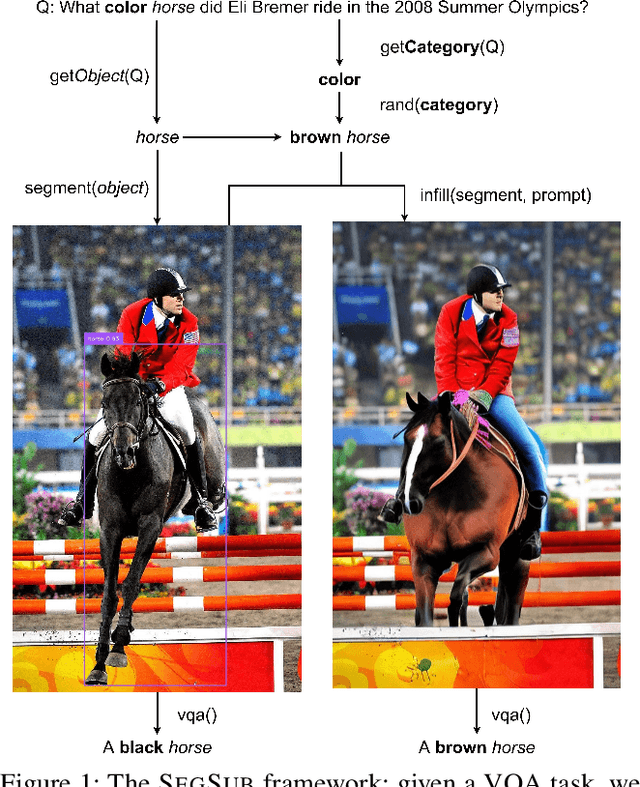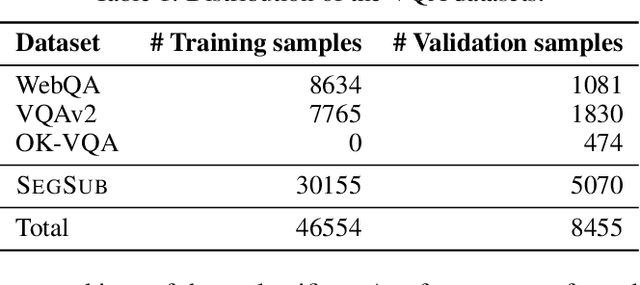Abhinand Jha
Quantifying Memorization and Retriever Performance in Retrieval-Augmented Vision-Language Models
Feb 19, 2025Abstract:Large Language Models (LLMs) demonstrate remarkable capabilities in question answering (QA), but metrics for assessing their reliance on memorization versus retrieval remain underdeveloped. Moreover, while finetuned models are state-of-the-art on closed-domain tasks, general-purpose models like GPT-4o exhibit strong zero-shot performance. This raises questions about the trade-offs between memorization, generalization, and retrieval. In this work, we analyze the extent to which multimodal retrieval-augmented VLMs memorize training data compared to baseline VLMs. Using the WebQA benchmark, we contrast finetuned models with baseline VLMs on multihop retrieval and question answering, examining the impact of finetuning on data memorization. To quantify memorization in end-to-end retrieval and QA systems, we propose several proxy metrics by investigating instances where QA succeeds despite retrieval failing. Our results reveal the extent to which finetuned models rely on memorization. In contrast, retrieval-augmented VLMs have lower memorization scores, at the cost of accuracy (72% vs 52% on WebQA test set). As such, our measures pose a challenge for future work to reconcile memorization and generalization in both Open-Domain QA and joint Retrieval-QA tasks.
KOALA: Knowledge Conflict Augmentations for Robustness in Vision Language Models
Feb 19, 2025



Abstract:The robustness of large language models (LLMs) against knowledge conflicts in unimodal question answering systems has been well studied. However, the effect of conflicts in information sources on vision language models (VLMs) in multimodal settings has not yet been explored. In this work, we propose \segsub, a framework that applies targeted perturbations to image sources to study and improve the robustness of VLMs against three different types of knowledge conflicts, namely parametric, source, and counterfactual conflicts. Contrary to prior findings that showed that LLMs are sensitive to parametric conflicts arising from textual perturbations, we find VLMs are largely robust to image perturbation. On the other hand, VLMs perform poorly on counterfactual examples (<30% accuracy) and fail to reason over source conflicts (<1% accuracy). We also find a link between hallucinations and image context, with GPT-4o prone to hallucination when presented with highly contextualized counterfactual examples. While challenges persist with source conflicts, finetuning models significantly improves reasoning over counterfactual samples. Our findings highlight the need for VLM training methodologies that enhance their reasoning capabilities, particularly in addressing complex knowledge conflicts between multimodal sources.
 Add to Chrome
Add to Chrome Add to Firefox
Add to Firefox Add to Edge
Add to Edge